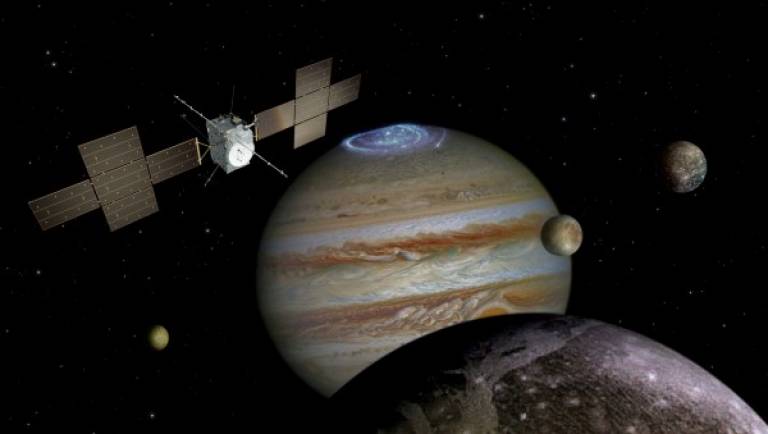Sir Robert Wilson Lecture, 2022
6 October 2022
The Astrophysics Group are delighted to announce that the Sir Robert Wilson Lecture 2022 will take place (in-person) on Wednesday 16th November at 4pm, followed by a reception at 5pm.

This year it will be a joint lecture; our prestigious speakers are Prof. Emma Bunce (https://le.ac.uk/people/emma-bunce) and Prof. Michele Dougherty (https://www.imperial.ac.uk/people/m.dougherty).
Title: Robotic Exploration of our Solar System
Abstact: Robotic exploration of the solar system has advanced our understanding of planets and moons substantially over the last few decades, from interior structures to space environments. These advanced spacecraft with their state-of-the-art instruments are launched towards their targets many years before the first in situ observations are made, and consideration of what will come next in terms of future planetary exploration is often decided many years before launch. Between them, Michele and Emma have gained experience of developing proposals for new missions, and leading instrument science teams on various interplanetary explorers – such as NASA/ESA Cassini mission to Saturn, the ESA/JAXA mission to Mercury, and the ESA Jupiter Icy Moons Explorer (JUICE) to Jupiter and Ganymede.
In this lecture Michele and Emma will compare and contrast their personal experiences, highlighting key discoveries from the NASA/ESA Cassini-Huygens mission to Saturn, and taking a look forward to two upcoming solar system missions: the ESA/JAXA BepiColombo mission to Mercury and the ESA Jupiter Icy Moons Explorer mission to Jupiter and Ganymede. And while these three missions are separated in time and space, each one links to the next scientifically, providing significant steps forward in our understanding.
More information can be found in the poster:
Picture: ESA JUICE Mission – Credit: Spacecraft: ESA/ATG medialab; Jupiter: NASA/ESA/J. Nichols (University of Leicester); Ganymede: NASA/JPL; Io: NASA/JPL/University of Arizona; Callisto and Europa: NASA/JPL/DLR
 Close
Close

